February 24, 2019
Christine MacIntyre was talking with a couple of Syrian refugees in a downtown Winnipeg park when they posed a question.
Where could they find someone like her, they asked?
They knew MacIntyre had already befriended Sahar Alseidy, who came to Canada as refugee from Syria in 2016.
They, too, wanted a Canadian friend.
"All these people," MacIntyre said, almost wistfully, "are just looking for a connection."
For MacIntyre and her husband, Regan Wolfrom, that connection formally began through a program at Winnipeg's Welcome Place, a refugee resettlement agency, that introduced them to the family of Alseidy and Hani Tabanja.
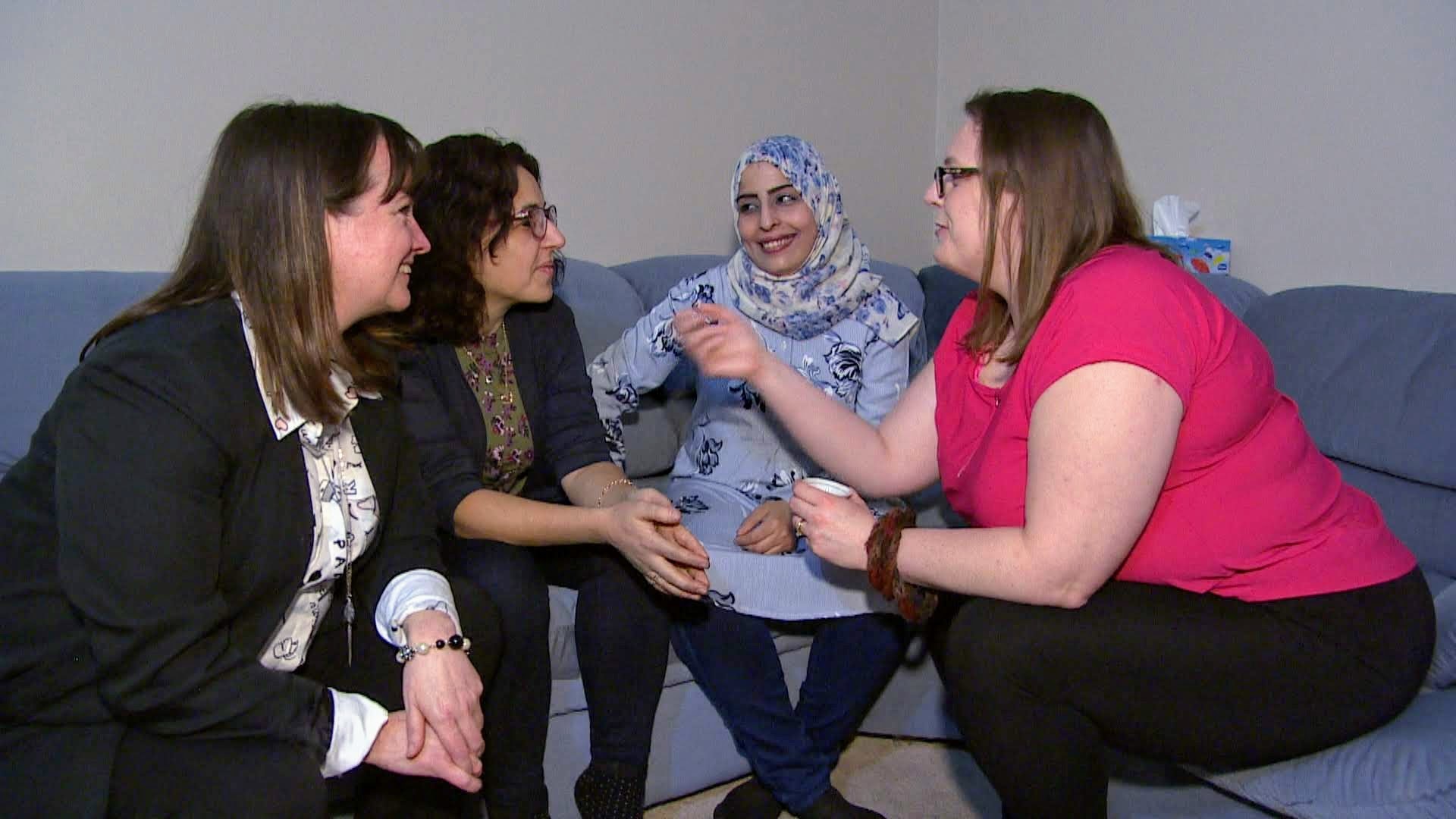
The program pairs Canadians, fluent in the language and familiar with the culture, with newcomers.
But the bond really formed in places like the south Winnipeg living room, where — on a recent Tuesday night — a bubbly Syrian boy sits on the shoulders of Wolfrom, after a thwarted bid to tackle him.
You can see that bond in the way MacIntyre delicately holds Alseidy's hands, when the Syrian mother of three weeps as she thinks of her ill mother who cannot be there.
It manifests when they go trick-or-treating together, or enjoy a summer day on a boat outside Gimli, Man.
"Oftentimes, we get this idea that somehow we are doing a service to people who come to Canada, but that's not really how it is," MacIntyre said.
"Maybe I had that misconception, but what I found was that these people that are coming here are amazingly brave and strong and have a great depth of capacity. All they need is some friends."
A need for companions
Three years after the federal government brought 25,000 Syrians fleeing a civil war into the country, the refugees who found belonging among Canadians are better off than those who haven't, said Maysoun Darweesh, who matches refugees and their friends-to-be through Welcome Place.
Once the newcomers have basic needs like food and shelter met, they want companionship. They find it among other refugees, but that doesn't go far enough, she says.
"Later on you will feel like, 'OK, I'm here. This is my final destination. This is my country,' and I have no idea about what's happening," said Darweesh, who — as a Syrian refugee who arrived in 2012 — understands where they're coming from.
"That's when they start asking, 'We want to meet people from here. People that can visit us, spend time with us, become really, like, close friends to us.'"
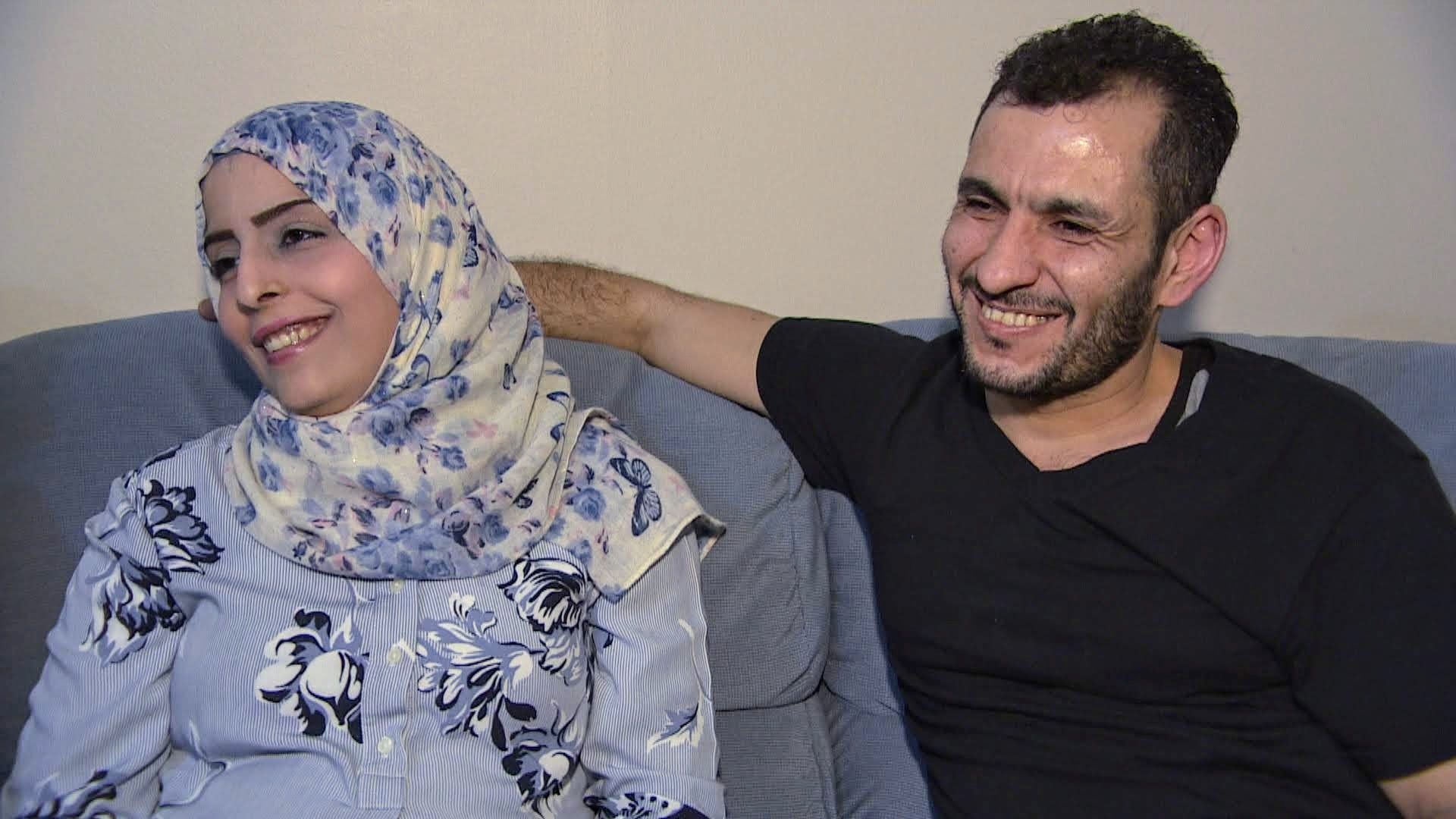
Without these bonds, some newcomers give up. It's tough to learn English when there aren't fluent speakers to practise with outside the classroom. They become satisfied simply with their children becoming articulate.
Darweesh has facilitated more than 200 matches since 2016 through Welcome Place, but has more than 100 refugee families and individuals on a waiting list.
Winnipeg had welcomed more than 1,800 Syrians between 2015 and the end of 2018, according to the federal government.
Wolfrom said the arranged friendship he and MacIntyre have with the Tabanjas came together naturally. It never felt like a task.
"When you think about something fun you want to do, you think, 'This would be more fun if I had the chaos that is the Tabanja family,'" he said, as his new friends laughed.
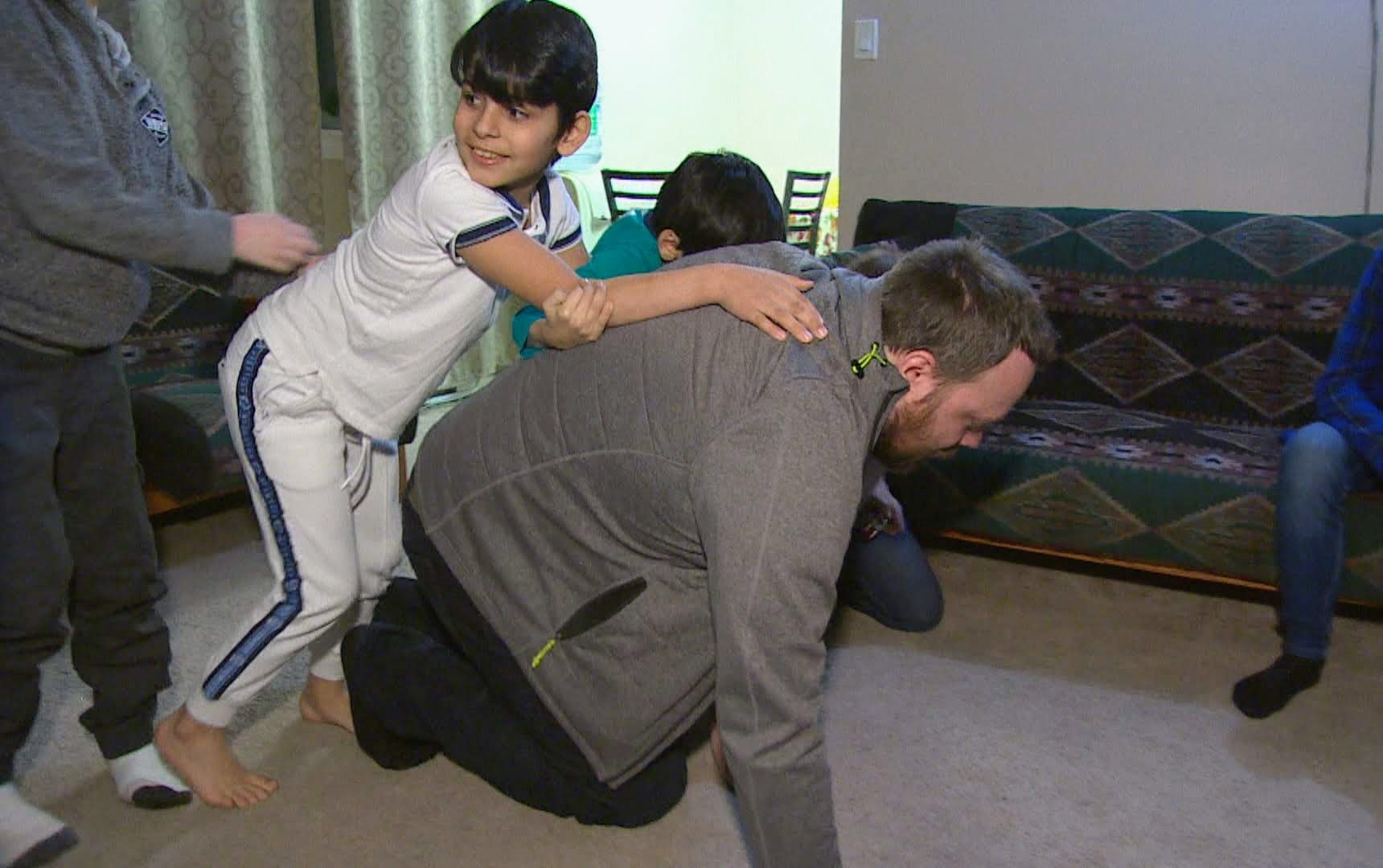
Picture four roughhousing boys who treat a carpeted apartment floor like their own wrestling mat, and consider Wolfrom a worthy rival to gang up on.
"I can skip leg [workout] day and just come here," Wolfrom quips during a break in the hijinks.
He said it's great to be in the lives of the Tabanja clan, who he wouldn't have met without Darweesh.
"You don't do a lot. You just be there and you're making a difference in somebody's life."
'Thank God we have them'
The government-sponsored refugees arrived in Winnipeg three years ago this month. They met MacIntyre and Wolfrom in 2017.
"Thank God we have them as friends," said Hani Tabanja, father of three boys — Ahmad, 13, Mohammad, 10, and Wisam, 6 — through a translator.
"We didn't know how to operate with everything going around us, but because of them everything became easier," he added.
Beyond companionship, he credits Wolfrom with finding him employment.
Wolfrom noticed a job posting on Kijii in line with the sort of work Hani did in Syria. Hani landed the job with House of Silver, which specializes in metal repair and restoration.
It's been a blessing, says owner Robert Wynnobel, to hire an experienced hand who doesn't need coddling.
Language was a barrier they've mainly worked past, and now they use Google Translate infrequently.
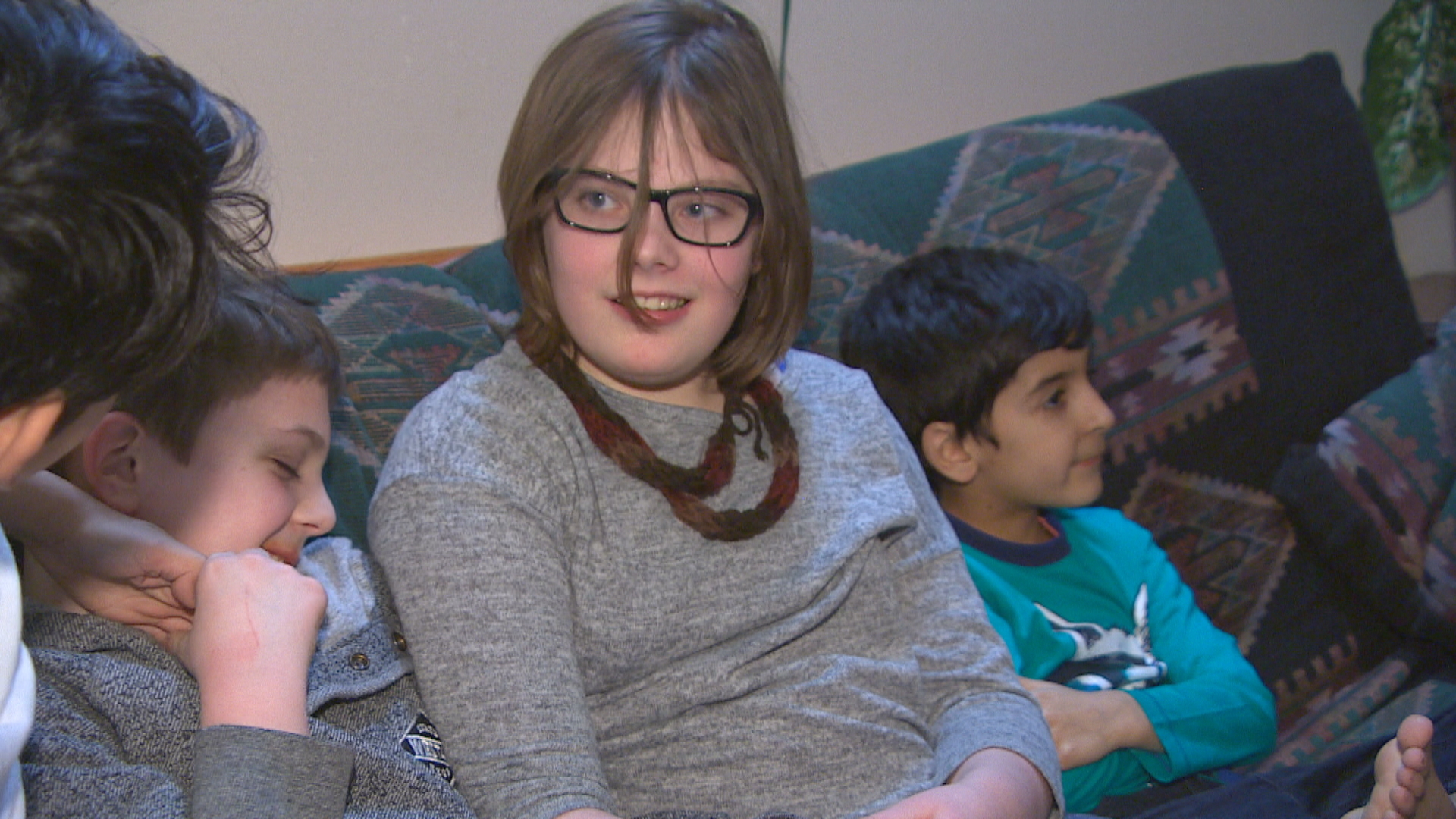
In a shop of three guys, Hani has made his mark through his work ethic and, importantly, his choice of drink.
"He walks in with the little tea kettle and he goes like this," Wynnobel said, mimicking the raising of a pot. "So when Hani started, we started drinking tea. Before that we never had tea."
Hani's wife, Sahar Alseidy, only wishes her mother and brothers could join them in Canada. Years ago, Venezuela took in thousands of Syrian refugees, including members of her family, but now the situation in that crisis-torn nation is hardly better than what they escaped in the Middle East.
Alseidy and her family need money to sponsor her relatives, but the cost is too much for them to bear.
MacIntyre thinks back to a summer day on the lake, which Alseidy was showing her family through video. Her friend suddenly became sad.
"That kind of put the fire in my stomach that this is not acceptable, and they need their family here," MacIntyre said. "It's not acceptable that they're experiencing Canada through a screen."
An enduring connection
Across the city, in a North Kildonan home, a Syrian boy of seven — one of the Alsliman family triplets — bounces from wall to wall, as energetic children do. He stops only to sidle up beside his mother, rest his head on her and sing, unprompted, a rendition of O Canada.
He doesn't know all the words. But the touching moment brings calm to this home, rarely silent when four Syrian children and their two Canadian friends get together.
They like to play with building blocks, jump on a bed and draw elephants.
It's another bond between a Canadian and a Syrian family, brought together by someone else, which grew organically.
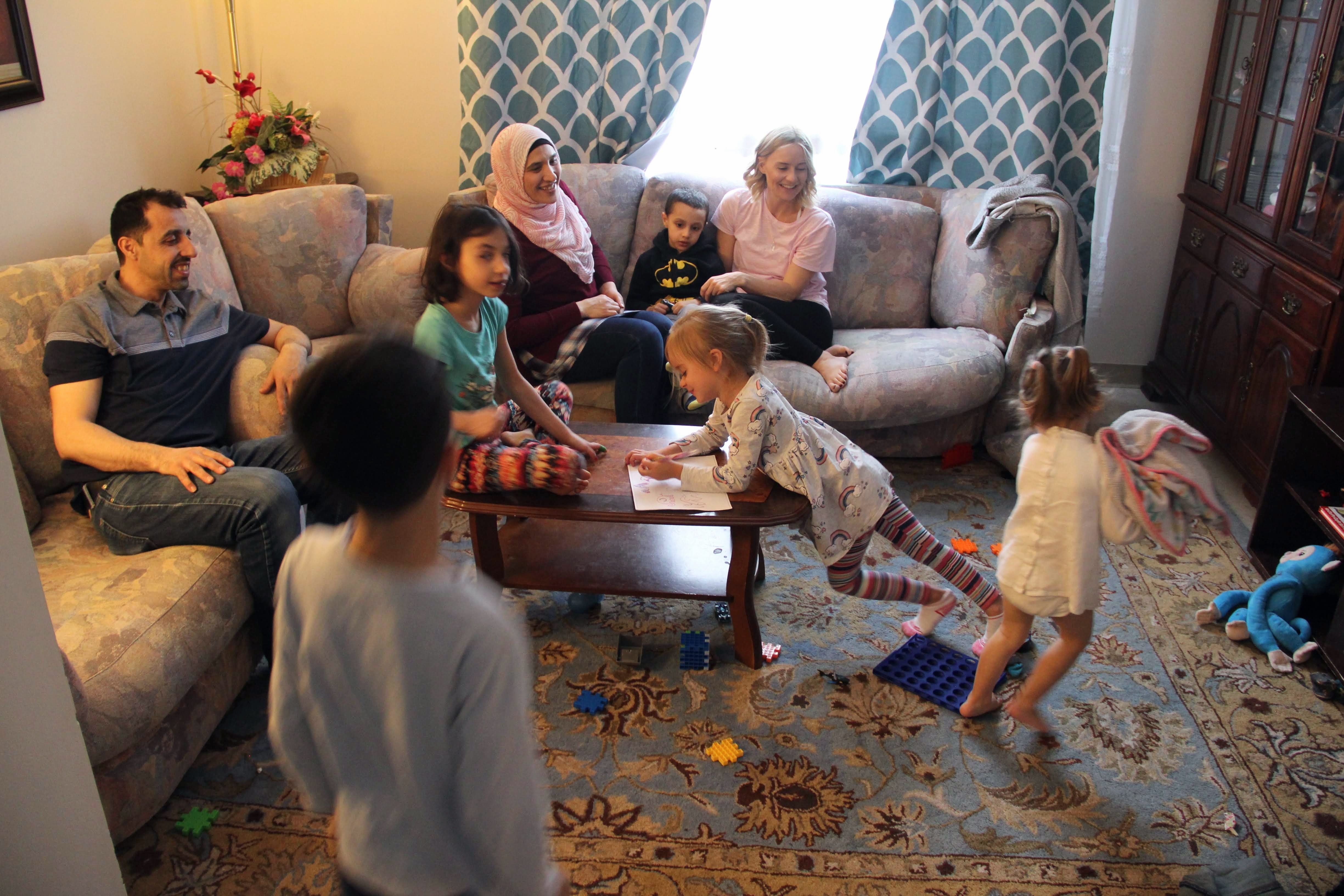
Vicki Melo ran a private group that raised enough money to support a Syrian family — who they had never met — for a year. They were matched by the Mennonite Central Committee Canada with the Alsliman family, who arrived in early 2016 with four children, including triplets.
Some of the sponsors backed off once their year-long contract lapsed, but a number of them, like Melo, couldn't.
She's grown so close with Magda Alsliman that if her husband — who travels for work — cannot be at the hospital for the upcoming birth of her third child, Alsliman will be there for Melo instead.
"I know that I would feel completely safe and taken care of, and understood, if she was by my side," Melo said.
Their connection is almost surreal, she explains. It was first shaped on an airport floor when they met in tears.
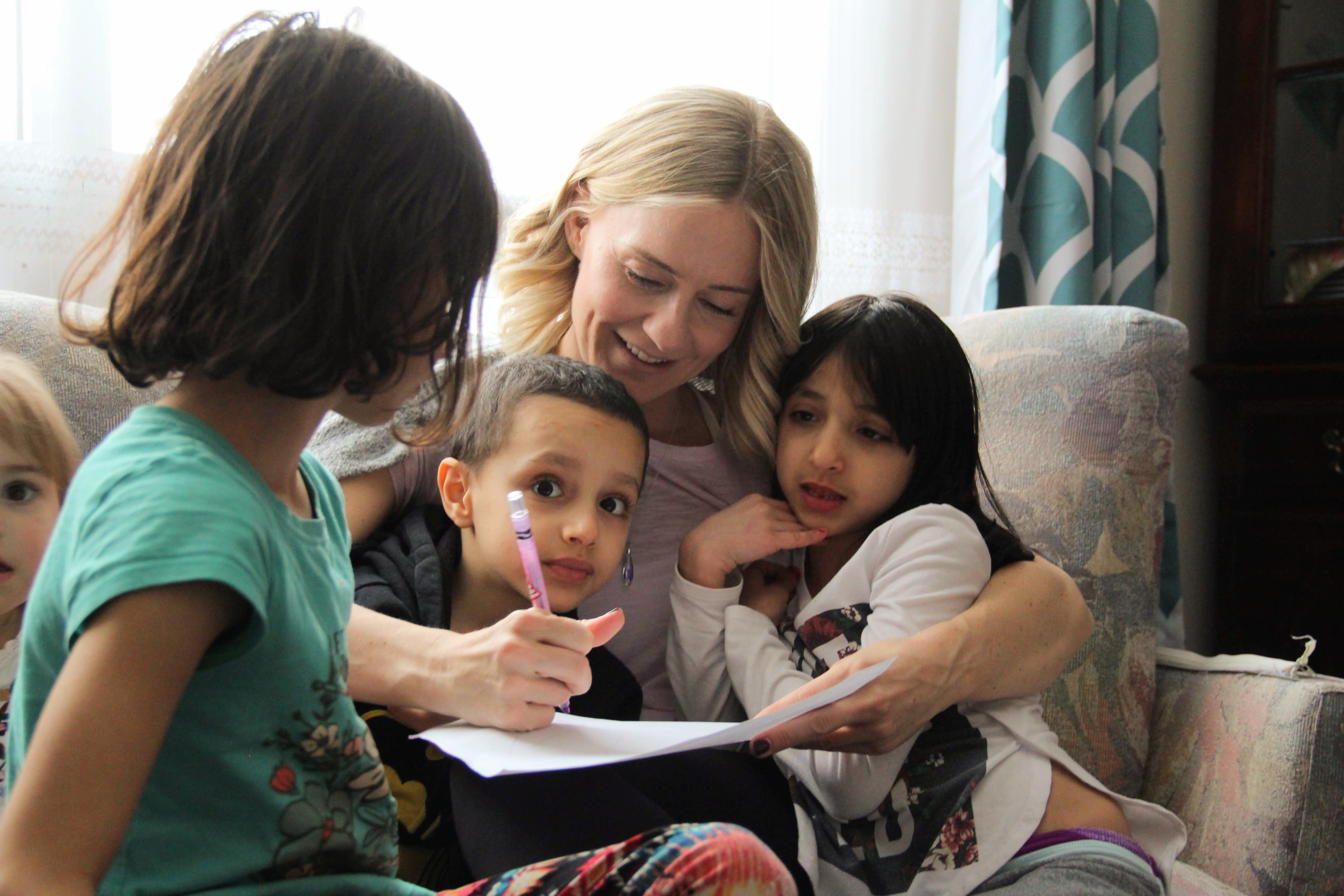
"Honestly, it's been such a gift," she said. "We brought this family here, thinking that we were going to be helping them, but really they have enriched my life so much, and my children's lives."
The families see each other once a week. Since they have young kids, they usually travel to homes rather than events, which suits them just fine. They mark birthdays together. They celebrate Christmas and commemorate Eid.
Melo jokes that Alsliman's four children — Azhar, Ahlam and Nassar, all 7, and Ahmad, 6 — are more Canadian than hers, since they've strapped on the skates and play hockey.
Outside the home, Magda splits her time between taking English classes and volunteering at her children's school, while her husband, Muhamd, is proficient enough at English that he's started to seriously look for work. It's been difficult thus far, he said.
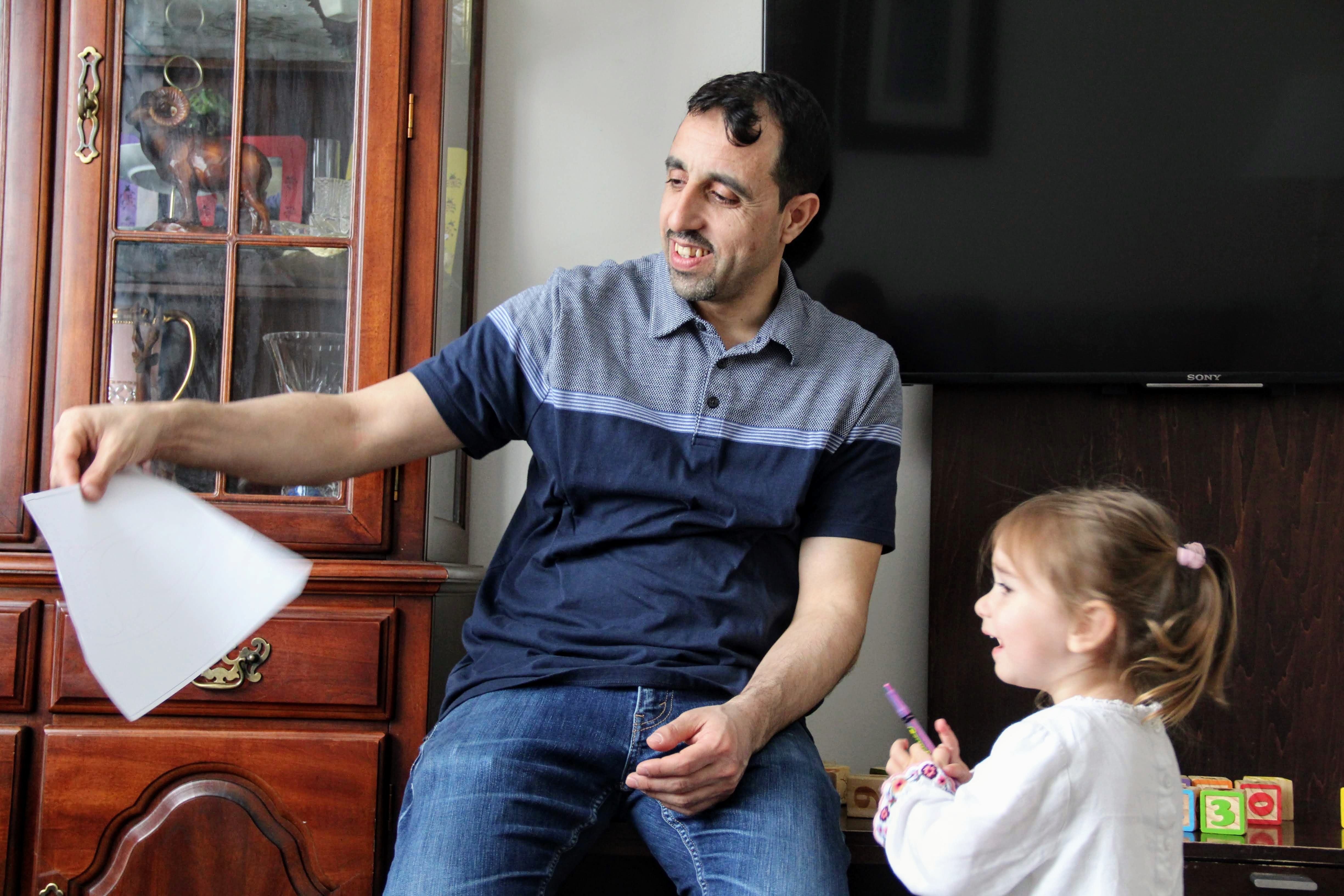
They're hopeful for their future and they have supporters like the Melos — and others who chauffeur them to and fro or watch their kids — to thank.
"I always have a feeling: what I want to return for this people?" Magda said. "This friend is not a friend — this [is] family."
Some newcomers struggle with loneliness, but her experience is different.
"I do not feel alone."
Top image: Vicki Melo, right, who helped to sponsor the arrival of Magda Alsliman and her family to Canada, says her friendship with the Syrian refugee has enriched her life.
